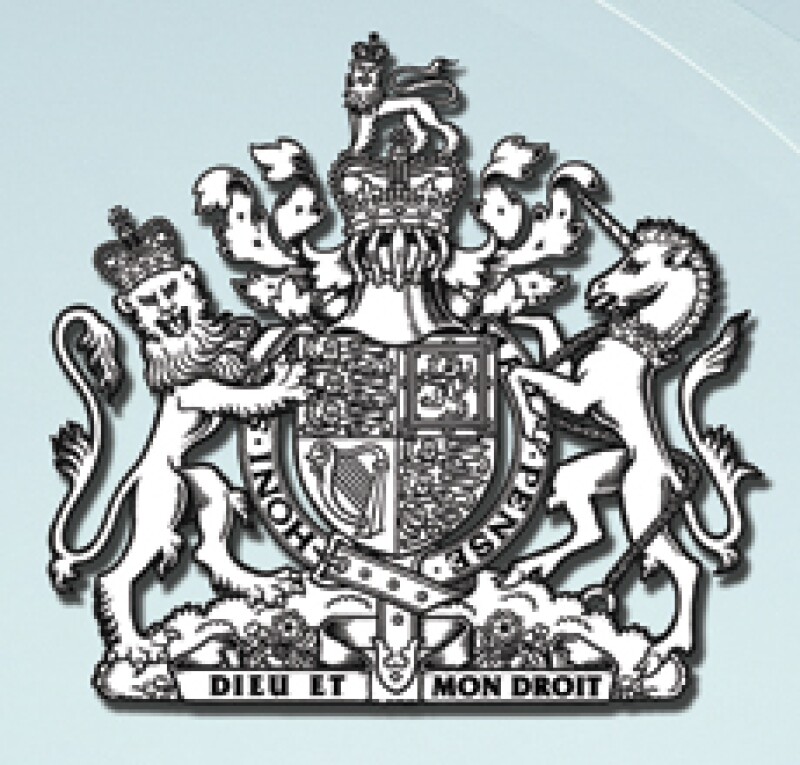
Contents: How the PCC became a global player |
London's Patents County Court (PCC) has come of age. In January the court issued its 100th ruling under its new procedural rules, which came into force in October 2010. Those rulings have included every type of IP right, every type of IP owner and every type of case – from the quick and simple to the complex and fact-heavy. It is a flourishing venue, a boon to the English justice system and – most importantly – an option that every company should now consider for IP disputes, even as an alternative to other jurisdictions.
The broad scope of a small court
The PCC's new rules were introduced with the aim of delivering a cheaper, quicker version of English justice for IP disputes. Key to this was the costs cap of £50,000, so parties knew the maximum that could be awarded against them from the other side's costs. They could of course still spend more than this on their own legal counsel, and often do, but the risk was much lower than in the High Court.
It was expected that this would lead to many cases over designs and copyright that would never be worthwhile taking to the High Court. This has proved to be the case: of the 45 cases listed in our exclusive PCC database (available in full on ManagingIP.com), 10 concerned designs and 23 copyright. There were also 12 trade mark judgments.
But there have also been several important patent cases, such as Unilever v SC Johnson, Liversidge v Owen Mumford and Merck v Sigma – over shower sprays, medical injectors and asthma drugs respectively. Big patent owners have considered the PCC a suitable venue for their disputes, and generally had their faith rewarded.
However, registered design cases are relatively simple. Arguably more impressive are the fact-heavy cases that have been heard and decided by the PCC in its allotted two days. Henderson v All Around the World, for example, involved a singer (Jodie Henderson), a producer, a consultant, a manager and a record label and their tortured history – it takes Judge Birss 24 paragraphs in his judgment to explain the background to the dispute. But it was all argued over January 24 and 25.
"It's been a great combination. On the one hand, small disputes are being decided that would never have had access to justice before, and on the other hand some very substantial cases are being heard because of the effective approach to case management," says Dave Croston of Withers & Rogers, who has worked on several PCC cases, most recently the patent case AP Racing v Alcon.
IP owners: manage your case
That hands-on approach in case management conferences is seen by many as the key to the PCC's success. Birss has been strict in limiting the claims and prior art that can be argued, and cut down on the length of hearings as a result. In the three articles following this story, three solicitors that have been involved in the PCC give their advice on how IP owners should approach the court. Perhaps most important is the advice on how to handle the case management conference.
"Parties are well advised to have their case in order before case management or prepare to face the cost consequences," says Gordon Harris of Wragge & Co in his article. "Parties are now required to justify their requests for disclosure, experiments, witness statements and expert reports on a cost/benefit analysis."
While case management has worked well consistently, other areas of PCC procedure have taken time to settle down, costs being the most obvious example. It wasn't initially clear how the cost calculations would be made, how issue-based discounts would be applied and whether those would be done before or after the £50,000 costs cap.
Cases such as Vernacare, BOS and Westwood have set a clear precedent, and all parties now have a clear understanding of how the mathematical formula will be applied. It is also now clear that costs incurred in the High Court before a case is moved to the PCC will be added on top of the cap – as established in Westwood and applied recently in Alcon.
One area that is uncertain is preliminary opinions. These are initial views expressed by the judge on the merits of the case – at the agreement of both parties – and are not binding on either them or the court. They were first mooted in Weight Watchers v Love Bites and then used in Fayus v Flying Trade Group (both trade mark disputes), seemingly successfully. In Fayus, Birss said he thought there was a "strong case" for passing off and that the defendant's mark was invalid. It was settled soon after.
Croston believes there will be more such opinions in the future, and likens them to Markman hearings in the United States, where the judge gives an initial view on construction of claims to avoid those issues being dealt with in front of a jury. Harris is less sure: "One side nearly always has an incentive not to go for a preliminary opinion. At the very least it can destroy any negotiating position you had."
Choosing the PCC over Germany
With all this success, could the PCC compete internationally and become an alternative venue to the Germany or the Netherlands? Paul Walsh, head of brands at Bristows, says it already is. He has been involved with seven cases involving the PCC so far, one of which made it to trial. "And next week I'm taking a case to the court where we elected the PCC over the High Court and two or three other possible venues in Europe," he says.
The PCC's biggest advantage is its low costs, given the fact that English litigation has always been more expensive than elsewhere in Europe. Once the expense is removed from the equation, England's other advantages come to fore as well: no bifurcation (although this is to the advantage of some patent owners) so a ruling on both infringement and validity, and appeals that are not a complete rehearing.
"I've just come back from China and companies there are very cost sensitive, despite their size," says Harris. "They love the unitary patent and they're excited about the PCC. They're used to bifurcation, but they don't like it. When we tell them this gives them greater finality, a ruling on both issues, and all for cheaper than Germany, the response is very enthusiastic."
The impact of the PCC is most obviously seen in the direction of proposed reforms to the High Court, following recommendations in the Jackson Report. Although there is still much to-ing and fro-ing on the details, the reforms will include several successful aspects of the PCC, such as more active case management. After false starts in the past, the PCC is now driving the direction of the whole English justice system.
Which lawyer should you choose?
A quick glance through Managing IP's PCC database (extract overleaf) throws up many familiar names among the barristers: Henry Ward, Geoffrey Pritchard, Richard Davis. But it is only more recently that some of the bigger law firms have become involved. Wragge & Co has done more than most, but Bristows, Bird & Bird and DLA Piper have now all run cases, as have Taylor Wessing, Hogan Lovells and Redd. On the attorney side, Withers & Rogers has done the most but Carpmaels and others have also run the odd case.
That pitting of lawyers and attorneys against each other has occasionally caused problems with referral relationships, but the bigger the PCC gets and the more of both are involved, the less of an issue it becomes. Wragge and Withers have been up against other three times so far, but have also passed over cases to each other.
"There was concern about relationships with solicitors when we decided to actively target PCC work, and it has caused occasional problems," says Croston at Withers & Rogers. "But there have been almost 100 cases in two years now – it's benefiting everyone, lawyers, patent attorneys and litigants."
Several law firms are actively creating teams specialising in PCC work, and everyone is at the stage where it is considered alongside all other avenues for dispute resolution. Walsh points out that it can often overlap well with mediation: "The PCC requires a lot more work in setting out your case at the beginning, but that work can also be recycled for mediation, to explain it to the mediator and the opposing side."
An uncertain future
The only problem with the PCC is Judge Birss. Not that he isn't good enough, but that he's too good. He is universally lauded by lawyers for his work rate, his perceptiveness and his easy working style. He has made the new rules work, marketed the PCC tirelessly and sprinkled it all with a sense of humour. The quote that Samsung's tablet was not as "cool" as Apple's devices got a lot of coverage, but he also criticised one argument in Kohler Mira as establishing "Schrodinger's registered design", where you'd never know if an element of the design was there or not. And while waiting for a set of bundles to appear in court, said he liked nothing better than reading patents while watching Masterchef.
Birss has been one of the biggest reasons the PCC has succeeded and will be a hard act to follow. Unfortunately, he may have to be followed quite soon. He is already sitting in the High Court as a deputy judge and there are rumours he will have left the PCC by the end of the year. Those that have sat in for him over the past two years include barristers such as Douglas Campbell of Three New Square, Amanda Michaels of Hogarth Chambers and Iain Purvis QC of 11 South Square, but there is no obvious successor yet.
"There have been jokes that a group of us will get together and bully somebody really good into taking it on," says one solicitor. "It means that much to us in terms of business, as firms and as a country." Managing IP would add the benefit to IP owners, big and small, who have only just begun to get the best out of this new IP court.
Background to the court |
The Patents County Court was set up in 1990 as a cheaper, more streamlined alternative to the Patents Court in London (part of the High Court). Litigation in the UK is based more on oral hearings than in other countries, particularly Germany, which uses a more paper-based system. This makes cases longer and more expensive – still attractive for complex cases in areas such as pharmaceuticals, but less attractive for smaller disputes. The PCC reforms were well received but in 1998, following recommendations from Lord Woolf, all English courts adopted the new streamlined procedure and the PCC largely lost its appeal. The PCC got a new lease of life following proposals in 2009, which were adopted in a review of civil litigation costs by Lord Jackson. Most important among these changes was the limit of £50,000 on the costs that could be awarded to the losing party. The size of such cost awards was the biggest deterrent to all but the biggest companies taking cases to the High Court. Those new rules came into force in October 2010, with a limit on damages of £500,000. It also came with a new judge, barrister Colin Birss. The previous phases of the PCC had been characterised by the tenures of two other judges, Peter Ford (1990 to 2000) and Michael Fysh (2001 to 2010). In October 2012 a small claims track was added to the PCC, with a limit on costs of £5,000. |











